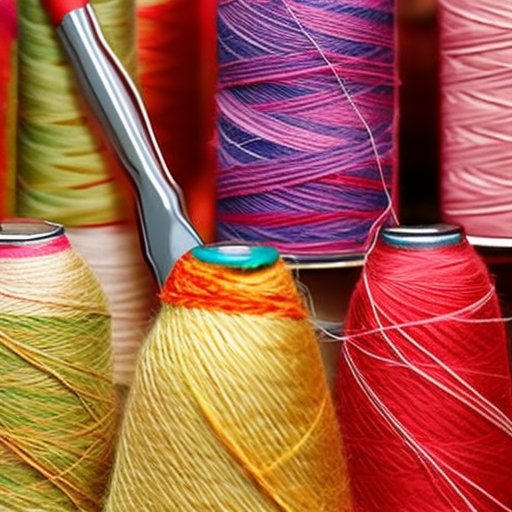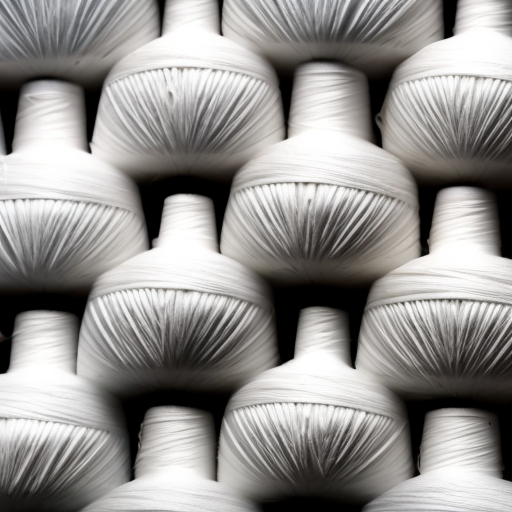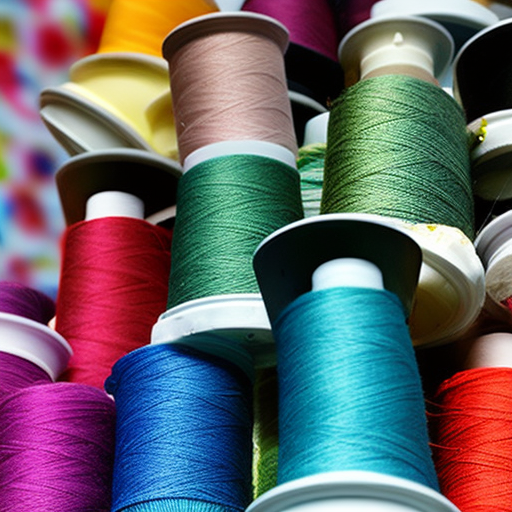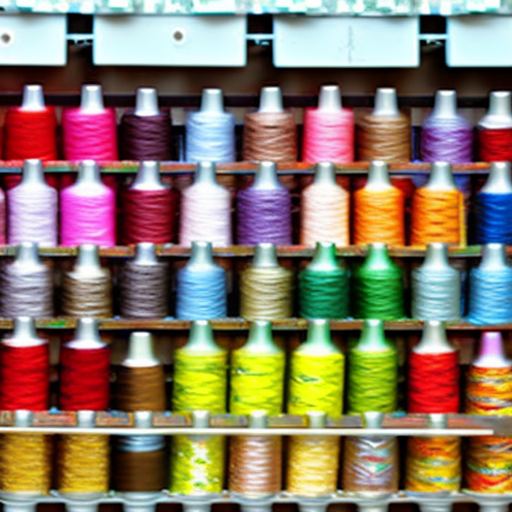
?
Sewing thread is an essential element in every sewing project, serving as the “backbone” that holds the fabric pieces together. It is a thin, long strand made of various materials, designed to pass through the eye of a sewing needle and interlock with fabric fibers to form stitches.

Threads specifically designed for sewing are commonly known as sewing threads. These threads come in a variety of types and materials, each suitable for different sewing purposes and fabric types. The choice of sewing thread depends on factors such as fabric weight, intended use, and desired durability.
1. Cotton Thread: Made from natural cotton fibers, cotton thread is widely popular due to its versatility and affordability. It is suitable for general sewing tasks, especially for lightweight and medium-weight fabrics. Cotton threads are available in a range of colors and thicknesses.

2. Polyester Thread: Made from synthetic polyester fibers, this thread offers excellent strength and durability. Polyester thread is resistant to heat, chemicals, and sunlight, making it ideal for sewing projects that require frequent washing or exposure to outdoor elements. It is suitable for both natural and synthetic fabrics.

3. Nylon Thread: Nylon thread is known for its high strength, elasticity, and resistance to abrasion. It is commonly used for heavy-duty sewing tasks, such as sewing canvas, leather, or upholstery fabrics. Nylon thread is available in various thicknesses and colors.

4. Silk Thread: Made from natural silk fibers, silk thread is renowned for its smooth texture, high tensile strength, and natural luster. It is commonly used for delicate fabrics, silk garments, and couture sewing, adding a touch of luxury to the finished product.

The type of thread you choose can greatly impact the overall quality and longevity of your sewing projects. It is essential to select a thread that best matches your fabric and project requirements.
Tip: When in doubt, consult the instructions provided with your sewing pattern or seek advice from experienced seamstresses or sewing professionals.
It is worth noting that sewing threads can also be categorized by thickness, denoted by a number system where higher numbers indicate finer threads. Some common thread weights include 30wt, 40wt, and 50wt.
So, the next time you embark on a sewing project, remember to pay attention to the type of sewing thread you choose. Whether it’s cotton, polyester, nylon, or silk, each type has specific features that make it suitable for different sewing applications. Happy sewing!
Source: SewingForAll.com





Thread is the most important item when sewing! Sewing thread is commonly referred to as “spools of thread” or “reels of thread” – it’s an essential item when it comes to sew fabrics and other materials together!
Yes, the right kind of sewing thread is important for any sewing project!
Aiesha Simmons: Indeed – it’s the backbone of any sewing project! Without it, there would be no way to properly attach fabrics together.
Indeed, selecting the right type and size of sewing thread is essential to create strong and beautiful stitches. It is also important to note that there are different types of threads, including natural fibers (e.g. cotton) and synthetic fibers (e.g. nylon), which can be used for various sewing projects.
Definitely! Without the right type of thread, no sewing job would be complete. It’s definitely important to choose the right kind and size to get the best results.